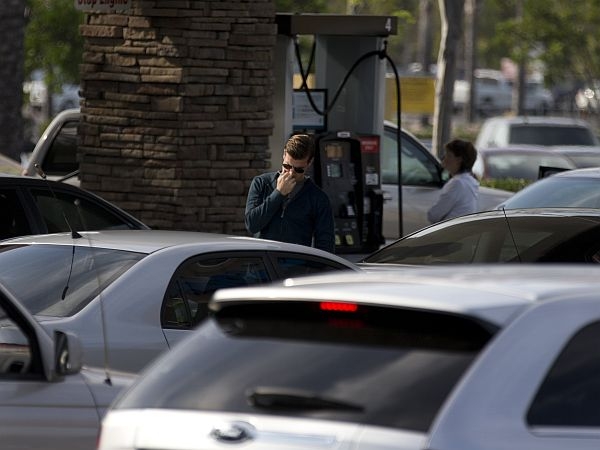 Last July, Senator Bernie Sanders asked the Federal Trade Commission to investigate gas prices in Northwestern Vermont.
Last July, Senator Bernie Sanders asked the Federal Trade Commission to investigate gas prices in Northwestern Vermont.
Sanders said consumers were being ripped off, and he blamed the area’s gas retailers for keeping prices artificially high simply.
The FTC has since reported that prices were higher than its projections. But in an indication that it doesn’t suspect illegal activity, it has told Sanders no further investigation is planned.
Sanders has never accused gasoline retailers of price fixing, or anything illegal.
But he did ask the government to investigate because he says there’s only one way to explain why Northwestern Vermont gas prices are sometimes much higher than the rest of the state.
"With a wink and a nod for a long time now, a handful of gas stations in Chittenden County, Franklin County, Grand Isle, maybe Lamoille County have more or less been able to control prices," Sanders says.
The Vermont Petroleum Association says a laundry list of factors determines gasoline prices from market to market, but it’s no secret that convenience store owners watch nearby competitors and adjust their prices accordingly.
Speaking with VPR last spring, Bob Moreau explained that’s exactly what happens between his business and the three other gasoline retailers in downtown Randolph.
"I see the guy from Champlain Farms come over here to the corner and look and I see the guy from Exxon come over to the corner and look. And they must send somebody from Cumby’s up. I see them every day," Moreau explained.
And there’s nothing wrong with that.
While there are laws that prevent gasoline prices increases during an emergency, it’s perfectly legal for retailers to raise prices to match their competitors. There’s even a legal term for it. It’s called "conscious parallelism."
Sometimes adjusting prices based on the competition leads to lower prices, but even if prices go up and the increase is all going into the retailers pocket conscious parallelism isn’t illegal.
"It’s not unlawful for to see your competition raise prices and for you to follow," says Jennifer Taub, an Associate Professor of Law at the Vermont Law School. "It’s not unlawful to be the first competitor to raise prices. What is unlawful, though, is when you act in concert pursuant to an agreement or a conspiracy to raise prices."
In other words it’s generally alright for a business to raise prices along with its competitors as long as there’s no evidence of an actual agreement to do so. Taub says the agreement doesn’t need to be explicit. It can be implied.
"If there’s evidence that two competitors got together and said ‘here’s what I’m planning to charge next week’ and the other said ‘and here’s what I’m planning to charge’ and they have a nice meal and they nod at each other, that can be a tacit agreement," she says.
What constitutes a tacit agreement is an important point because unlike other retailers gas stations post their prices on big signs out front.
The signs are there to draw in consumers, but in Sanders’ view they also make it easy for retailers to coordinate their pricing especially when there aren’t many competitors involved.
As Senator Sanders sees it: "You have a small number of owners in Northwest Vermont who I think look at each others prices and they say, ‘hey, there’s no particular reason to lower prices’."
Even evidence that obliquely suggests communicating about prices would raise serious price fixing concerns, but Jennifer Taub says conscious parallelism alone isn’t illegal.
"Even if the result from perfectly legal conduct, which is very high prices, is the same that would have resulted if there had been an actual agreement, it’s really not punishable," says Taub.
In 2011 a court rejected claims by residents of Martha’s Vineyard that a group of gas stations had engaged in illegal price fixing.
The residents made many of the same arguments Sanders is making. They claimed that gas prices were too high relative to other nearby markets and that the stations were making abnormally high profits.
They also cited a lack of competition and an effort by one retailer to block a new gas station.
But the court said it was simply a case of conscious parallelism.